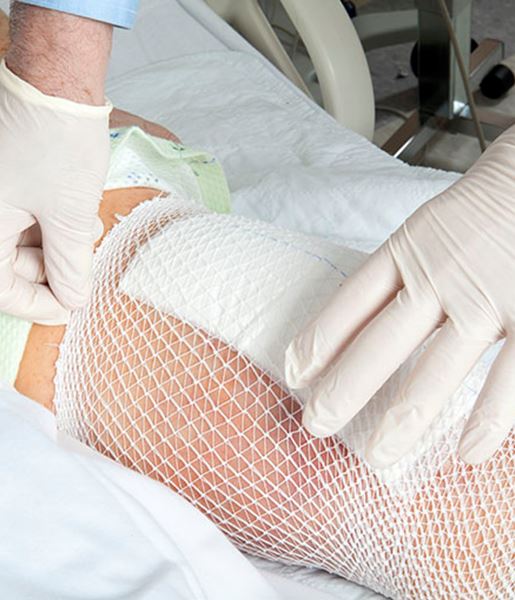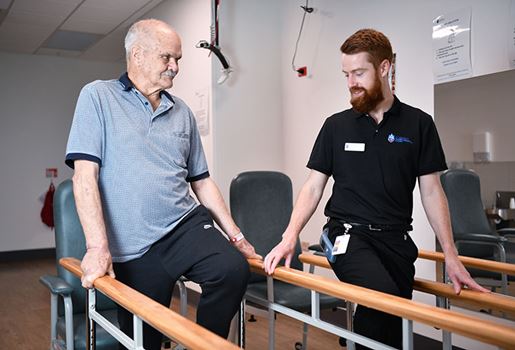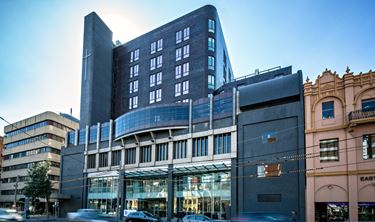Partial Knee Replacement
- Home
- Services
- Orthopaedics
- Knee Orthopaedics
- Knee Replacement
- Partial Knee Replacement
What is a partial knee replacement?
If only one part of your knee is affected by disease, it is sometimes possible to have a partial knee replacement rather than a total knee replacement. Often referred to as a uni-compartmental knee replacement, this procedure is a suitable option when only one of the three main knee compartments is affected by arthritis, most commonly osteoarthritis. During surgery, the specialist will replace either the inside compartment (medial), the outside compartment (lateral) or the compartment behind the kneecap (patellofemoral). Importantly, the supportive cruciate ligaments and cartilage will be left intact to preserve as much of the healthy knee as possible.
Partial knee replacement is a smaller operation than total knee replacement surgery and it can be performed using a smaller incision. This has many additional benefits which include less surgical time as well as a quicker recovery period. Replacing just one part of the knee is thought to result in a more naturally functioning knee joint with a better range of flexion and motion.
Is it right for me?
Only certain patients are eligible for this type of surgery but if you are suffering from significant pain and limited mobility it could be time to consider a surgical opinion. If your arthritis is present is only one area of the knee, and the rest remains healthy, partial knee replacement surgery may be possible.
The medial, or inner, area of the knee is most prone to cartilage damage, and if symptoms cannot be managed non-surgically your doctor may recommend a partial knee replacement rather than a total knee replacement. There is a possibility that arthritis could affect the other parts of the same knee joint at a later stage, in which case you may require revision surgery.
Preparation
If you're considering partial knee replacement, you will need to go through a thorough evaluation to determine if you are a suitable candidate for this type of surgery. This is especially relevant if your arthritis is confined to one area of the knee and the rest of the knee remains healthy. The preparation process may include various medical tests and discussions about your medical history and current health condition.
Follow up
After your partial knee replacement surgery at St Vincent's Private Hospital, our dedicated team ensures that your journey to recovery is smooth and well-monitored. Follow-up care is a crucial part of this journey. Typically, your first follow-up appointment will be scheduled a few weeks after the surgery to assess your progress and ensure proper healing of the knee. During these visits, our specialists will evaluate your mobility, pain levels, and the functionality of the knee joint. Regular follow-up appointments are recommended for at least a year post-surgery, with the frequency gradually decreasing as your knee heals and improves.
These check-ups are essential to monitor the integration of the implant and to address any concerns promptly. Alongside these medical evaluations, follow-up care also includes a personalised rehabilitation program, which is vital for regaining strength and mobility. This program, led by our expert physiotherapists, is tailored to your individual needs and progresses in stages to help you return to your daily activities safely and effectively. Remember, your active participation in follow-up care and rehabilitation is key to a successful recovery and achieving the best possible outcome from your partial knee replacement.

Total knee replacement approaches
Other knee surgeries and procedures
Partial Knee Replacement FAQs
You may be a candidate for partial knee replacement if you have significant knee pain due to arthritis but have not experienced widespread damage to your knee joint. This procedure is ideal if your damage is limited to a specific part of the knee, making you suitable for a less invasive approach compared to a total knee replacement.

How much will my knee surgery cost?
Understanding the cost of your treatment is an important consideration before committing to surgery, but it’s not always easy to find the information you need. Learn more about the factors which contribute to the cost of your surgery:
What will my treatment and recovery look like?
Familiarising yourself with your treatment program and understanding the recovery process are important steps to take on the pathway to surgery.

Find a hospital with orthopaedic services
Our Hospitals



